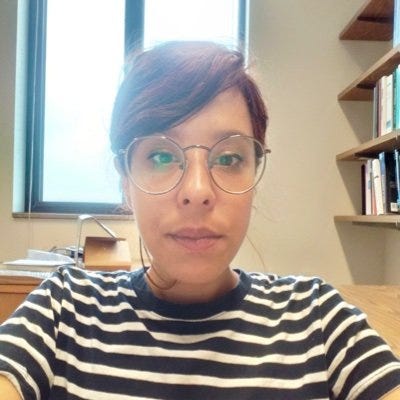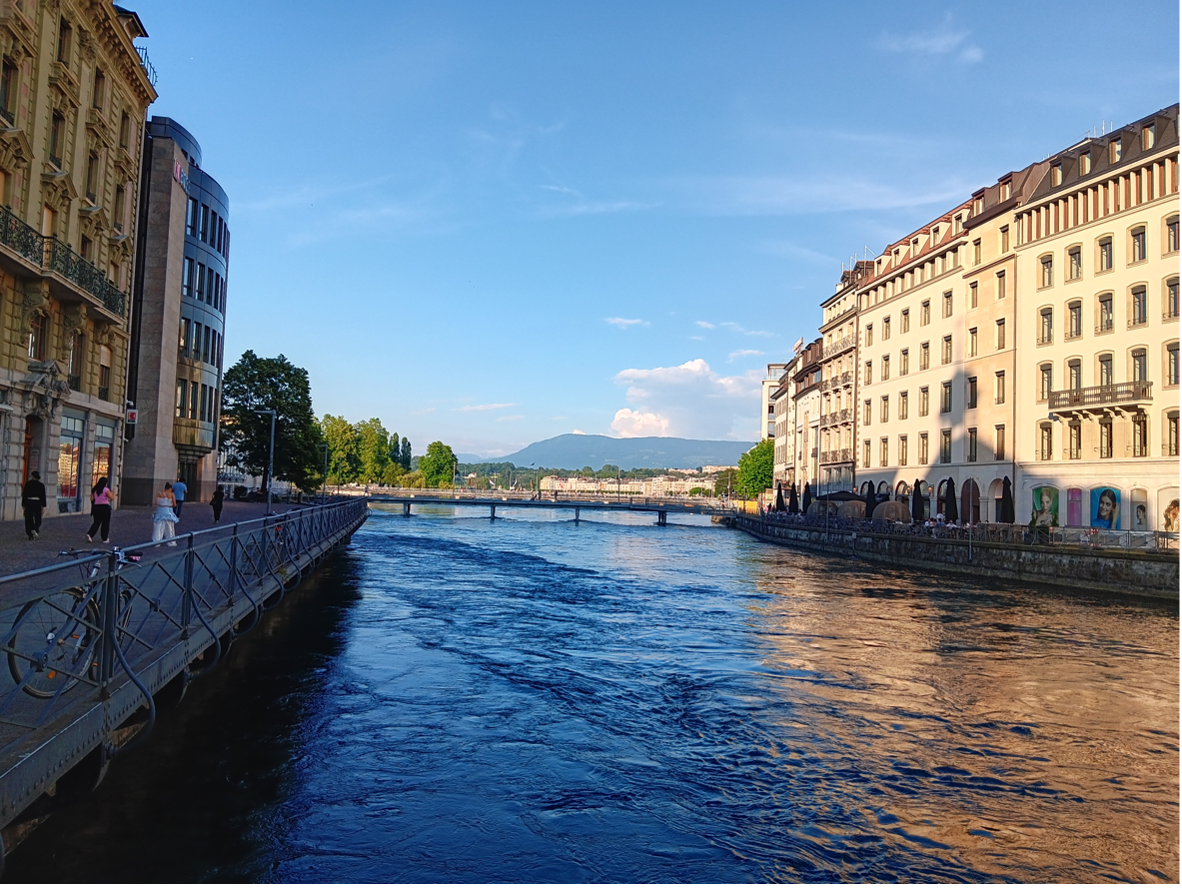In this post, I engage in a small exercise of mental time travel. The target of this mental exercise is the conference Issues in Philosophy of Memory 4 (IPM4). The conference took place at the University of Geneva from June 25th to June 28th with the support of the Philosophy of Memory Organization (PhOMO) and a grant from the Swiss National Foundation awarded to André Sant’Anna.
In this exercise, I will rely on my personal memories. Still, I hope that this post will be taken as an invitation to re-construct broader memories: to create a collective record - an external trace - of a collective experience.
Like other early-career researchers, I was supported by a travel grant from PhOMO (for which I am extremely grateful). The grant not only gave me the opportunity to present my research and hang out with old and new memory friends, but also to attend many of the more than 40 contributed talks and 8 keynote addresses presented during the conference.
André Sant’Anna, in collaboration with Andrea Rivadulla Duro and Fabrice Teroni, put together an incredibly varied and stimulating program. Topics included: extended forms of memory, analogies between pictures and episodic memories, the relationship between remembering and knowing, false memory and self-testimony, aphantasia, generic memory, memory systems, and so many more.
When I entered the beautiful Uni Mail Building of the University of Geneva, I was faced with the difficult decision that every researcher experiences on the first day of the conference: Which talks am I going to attend? I attended as many as I could and, thanks to the many fantastic opportunities for socialization offered during the conference, I have filled in the gaps through informal conversations with the others.
Here I discuss some of the ideas that caught my attention during talks and conversations. Considering the excellent quality of all that happened, there is so much more to say than I have space for here. Like many memory reports, what follows is sure to be gappy and selective.
I invite Memory Palace readers who attended IPM4 to share their memories of the conference in the comments, so that we can build together a richer memory of this collective experience.
Memory 1: Kathetine Puddifoot’s talk ‘Moral encroachment on memory’
Katherine Puddifoot (Durham University) opened the conference with the question of how we can use moral considerations to determine if a memory is genuine. Puddifoot’s work on the question starts from the observation that, in some cases, our memories can cause epistemic, practical, and affective harms to others. Puddifoot argues that, in consideration of these harms, our notion of genuine memory should be revised. In evaluating memories, we often place a lot of value on accuracy: memories that get the most things right are the most genuine. Puddifoot encourages us to include moral value as well: memories that cause harm may be less genuine even if they are more accurate. According to Puddiftoot, this move has practical and moral implications: it contributes to reducing the potential harms of our own memories, thus promoting justice and fairness.
Memory 2: Nazim Keven’s talk on the risks of cognitive individualism in memory research
In his talk ‘Cognitive individualism in memory research and its discontents’, Nazim Keven (Bilkent University) also focused on the social aspects of memory, but from a different perspective. Acknowledging the many ways in which episodic memories can become open to change, Keven argued that these changes often leave the core meaning of a memory intact. This allows both a link to the past and flexibility, which is good in many ways. It allows us to consider other people’s perspectives, facilitates interpersonal communication, fosters social harmony, and can help to resolve conflicts.
Memory 3: A conversation on forgetting with Yuping Wang
Yuping Wang, ad PhD student at the Chinese Academy of Sciences, gave a talk entitled ‘Forgetting and the truth-conducive problem’. As a researcher who works on forgetting, I very much regret having missed this talk! Still, I was happy to talk with her about her PhD project and learn about how conceiving of forgetting as an intellectual virtue can give us new insights about intellectual humility. I got into the philosophy of memory 6 years ago thanks to reading, among others, this paper on the epistemology of forgetting by Kirk Michaelian. It’s a great pleasure to see that that paper still functions as a door into the philosophy of memory for young researchers, like it did for me back in 2019 when I attended IPM2.
Memory 4: Nikola Andonovski talk on memory indexing and memory traces
Nikola Andonovski (Université Grenoble Alpes) gave a talk about memory traces and causal links to the past. This topic came up throughout the conference. For example, in talks by John Sutton, Jonathan Najenson, David Colaço, and Nathalia De Avila. It also came up in the commentaries on Felipe De Brigard’s book Memory and Remembering, as given by Andrea Rivadulla Duro, Juan Alvarez, James Openshaw, and Kirk Michaelian. And I have discussed it in my comments too, and in a talk on Markus Werning’s trace minimalism co-authored with Sarah Robins.
Andonovski situates his view within hippocampal indexing theory. He shows how an updated and revised version of the view can accommodate findings on the formation, long-term storage, and retrieval of episodic memories. In line with other proposals such as, for example, Sarah Robins’ one, Andonovski has suggested to conceive of memory traces as rich representations, which integrate both hippocampal and neocortical cell populations.
These are just some of the cherished memories (to cite Marya Schechtman) that came to my mind as I sat down for a short exercise of mental time travel back to IPM4. (For those who want to join me in introspecting their own memories, I suggest checking the abstract of Dorothea Debus’ talk on memory and introspection).
Of course, there are many more memories stored for later recall: stimulating conversations sparked by the keynote talks by Margerita Arcangeli, Robert Hopkins, Kristina Liefke, Albert Newen, Changsheng Lai, and Johannes Mahr (I wish I had a memory of Matthew Soteriou’s talk, but was unable to attend), exciting philosophical conversations during the social dinner, chats with Laura Oppi, Andrea Rivadulla Duro, and Sofiia Rappe, in which I have learned more about imagination, memory, and perception, and the group walk around Geneva organized by the fantastic students of the Center for the Philosophy of Memory.
Stepping back to my gist memory of the event, IPM4 stands in my mind as the meeting of a big, friendly, supportive community that is intellectually and geographically diverse. As I have stated elsewhere, one of the unique virtues of philosophers of memory is the drive to pursue and explore questions, in full awareness that an ultimate answer will not be found soon (if ever).
This is not only a fantastic example of how rigorous research can be done collectively, but also an excellent example of how philosophical progress can be achieved through disagreement, the continuous revision of theories and positions, and, of course, the inclusion and development of new research topics and methods.
Many thanks to PhOMO, and especially to André Sant’Anna, for being so generous with their time, ideas, and energy!
For those who want to know more about IPM4, I suggest checking last week’s post by André Sant’Anna and the PhOMO website, which includes the program of the conference and many other resources on the philosophy of memory.






